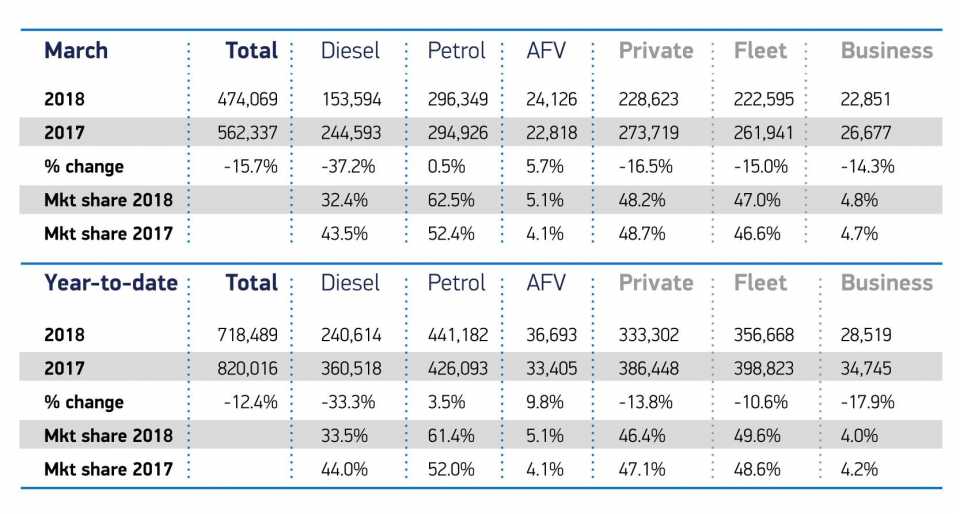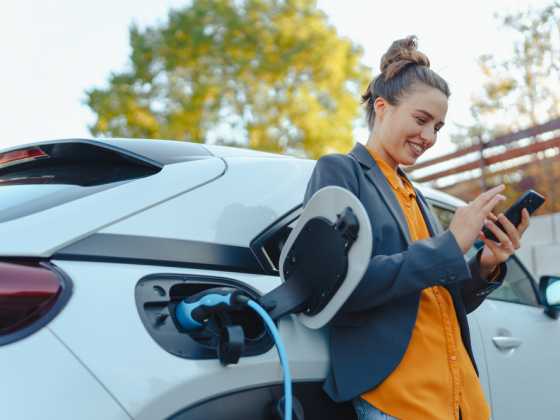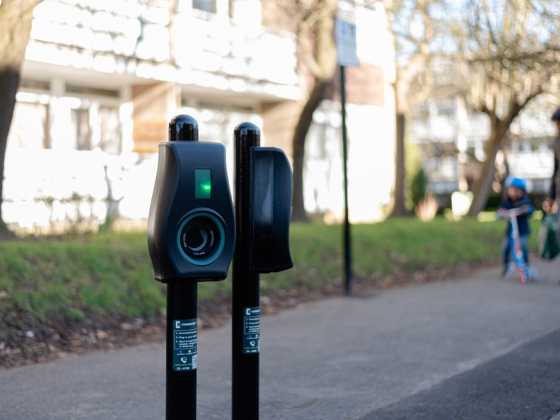New car sales fall this March, with diesel continuing its decline

New car registrations have fallen -15.7 per cent this March, compared with the same month last year, according to SMMT figures.
However, last March was the biggest month ever for new car registrations, as buyers purchased cars before new Vehicle Excise Duty (VED) rates came into force in April last year.
The SMMT says that economic and political uncertainty and confusion over air quality plans continued to affect confidence, resulting in declines across all sales types.
The demand fell from business, fleet and private buyers, down -14.3 per cent, -15.0 per cent and -16.5 per cent respectively.
Diesel registrations continued to decline in March, down -37.2 per cent.
Meanwhile, registrations of plug-in and hybrid vehicles continued to rise, up 5.7 per cent, with demand for plug-in hybrids driving growth, up 18.2 per cent for the month.
Registrations of petrol cars were more stable, up 0.5 per cent.
Regarding EV registrations, since the launch of the Plug-In Car Grant in January 2011, there have been 140,381 eligible cars registered.
The latest tax changes is not helping buyers exchange their older diesel vehicles for new lower emission models, the SMMT believes.
Mike Hawes, SMMT chief executive, said: “March’s decline is not unexpected given the huge surge in registrations in the same month last year. Despite this, the market itself is relatively high with the underlying factors in terms of consumer choice, finance availability and cost of ownership all highly competitive.
“Consumer and business confidence, however, has taken a knock in recent months and a thriving new car market is essential to the overall health of our economy. This means creating the right economic conditions for all types of consumers to have the confidence to buy new vehicles. All technologies, regardless of fuel type, have a role to play in helping improve air quality whilst meeting our climate change targets, so government must do more to encourage consumers to buy new vehicles rather than hang onto their older, more polluting vehicles.”



